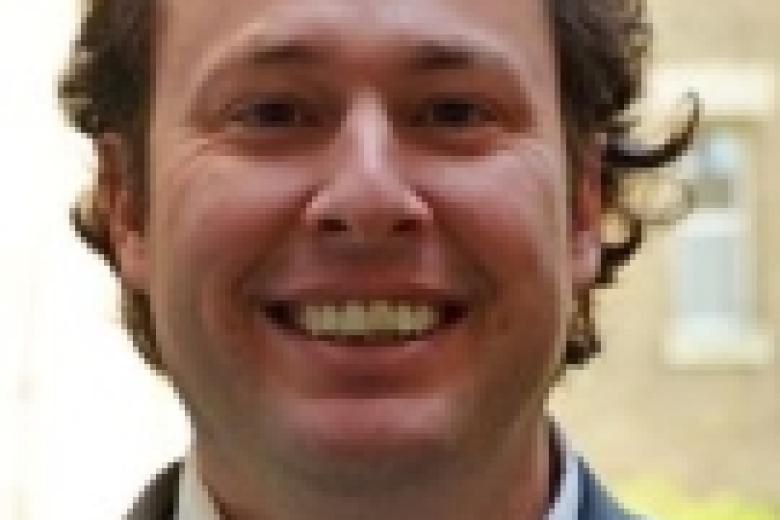Failure as a Learning Tool for Legal Science
Not every effort triggers a successful outcome. Academic efforts are no exception, and endeavours may fail because of different reasons and at different stages. Failure should be considered a learning experience both for those who attempted to succeed and for those who might attempt in the future. Academic efforts should not always be considered success stories, yet they should always be considered tools for change and for the advancement of legal science.
Roaming the legal research and reasoning cycle calls for the acknowledgment of limitations. For example, sources might not be sufficient during the researching stage; structuring of ideas in a clear and logical manner might be challenging during the writing stage; or the testing of the argument with other readers might prove flaws in the line of argumentation, during the testing stage. At all points, researchers need to keep track of the strengths and challenges of their cycles. The reasons to encounter failure must be assessed, serving to avoid the same pitfalls when returning to the research and reasoning cycle. That assessment will help in reconsidering the paths to follow and will make a research and reasoning project resilient.
What went wrong?
This is the fundamental question that researchers that encountered a failed experience need to answer. Exploring answers to that question is fundamental when aiming to develop legal science. Researchers should lose the fear of exposing their work even when the product of the cycle is not successful. This openness will help researchers augment awareness on strengths and weaknesses, with the potential of finding ways to re-think the paths followed and their results. Re-thinking will reignite the cycle, calling for a new research project, this time from a more mature and evolved state.
Synergy can be attained by sharing failed experiences with other researchers.
Sharing failed experiences traditionally took place in informal forums, within small circles, involving those who researchers trusted or who were in a mentorship relationship. Experiences were also shared informally at conferences, during coffee breaks; and they soon started to appear also in discussion forums on the internet, often in an anonymized manner. Yet, researchers started more and more to lose the fear of sharing these experiences, noting that there is benefit from everyone by sharing failed experiences. Formal forums therefore developed for those that consider failure a learning tool. For example, intervision sessions proliferated amongst those who attempted and failed, and have gestated a safe and reflective habitat to explore pitfalls and challenges. Likewise, periodicals secured space for failed experiences. On those lines, the Journal of Trial and Errorendorses the idea that “in scientific practice, trial and error is a fundamental process of learning and discovery. Therefore, [the journal] aims to make public the lessons of the struggles in research. [The journal] is convinced about the productive role of errors, and so we aim to publish answers to the question ‘what went wrong?’ in [different] forms.” More forums of this sort would only be of benefit for the development of legal science.
An inventory of what went wrong can help maximize the learning experience that failure provides.
Researchers need to take stock of limitations and to self-reflect on the process they undertook. These limitations and moments of self-reflection can relate to several aspects, including, but not limiting to, availability of time, access to sources, flows in argumentative lines, skills of the human resources involved, and access to financial resources. Researchers can avoid stepping on the same stone twice, if they take a comprehensive stock of what went wrong. Logbooks serve well in that learning process, helping to document failure as it emerges. These documents can be revisited when re-igniting research and reasoning cycles, in a timely manner. Resources are limited, and hence researchers should maximize their experiences by avoiding the replication of previous failed experiences. In addition, awareness of working points can assist in attaining a quick catch-up, something that is recurrent in other sciences, where researchers need to avoid replicating failed exercises that may have taken place in other laboratories. There is no need to reinvent the wheel or to walk along the same exact unsuccessful path!
Failure can take different forms.
Researchers could share grant applications that untimely did not receive funding. They could share pitfalls they experienced in an interview or in an oral presentation at a conference. They could also share the results of peer-review processes and even of critical book reviews. All these experiences can be discussed within and beyond the circle of the researcher, triggering awareness of working points suggested by peers. The researcher will be more aware and better informed of the failed experience and will ultimately be able to decide which working points to incorporate when returning to the research and reasoning cycle.
Everyone should embrace failure.
This often-not-addressed component of academic life should be considered a key that triggers change. It should be considered a necessary step when aiming to attain discoveries that can shape the development of legal science. After all, even when not every research and reasoning project should be considered a success story, legal science can evolve when previous failed experiences are assessed and reconsidered.
A. Parise
Agustín Parise (Buenos Aires, Argentina) is Associate Professor of Law and Chair of the Faculty Council at the Faculty of Law of Maastricht University. He received his degrees of LL.B. (abogado) and LL.D. (doctor en derecho) at Universidad de Buenos Aires (Argentina), where he was Lecturer in Legal History during 2001-2005. He received his degree of LL.M.

-
Before the World Court: What Is at Stake in the Advisory Proceedings on Israel’s Obligations in Relation to the United Nations and Other Actors in the Occupied Palestinian Territory
This explainer provides essential context on the ICJ’s advisory opinion request on Obligations of Israel in relation to the Presence and Activities of the United Nations, Other International Organizations and Third States in and in relation to the Occupied Palestinian Territory. The hearings...

-
Exploring Artificial Intelligence and Regulatory Challenges in Marine Environmental Policy
As part of the ‘AI & Marine Environmental Policy: What Role for Automated Systems?’ research project, a sensemaking workshop took place at Maastricht University’s Faculty of Law on March 28, 2025.

-
Law, Technology, and Society: The Critical Role of Science and Technology Studies in Legal Thought
Law increasingly addresses complex scientific and technological developments, and Science and Technology Studies (STS) is gradually making its way into legal scholarship. The strength of STS lies in its capacity to debunk abstract regulatory constructions and force law to confront questions of (in...
